ETFs trading: basics you should know
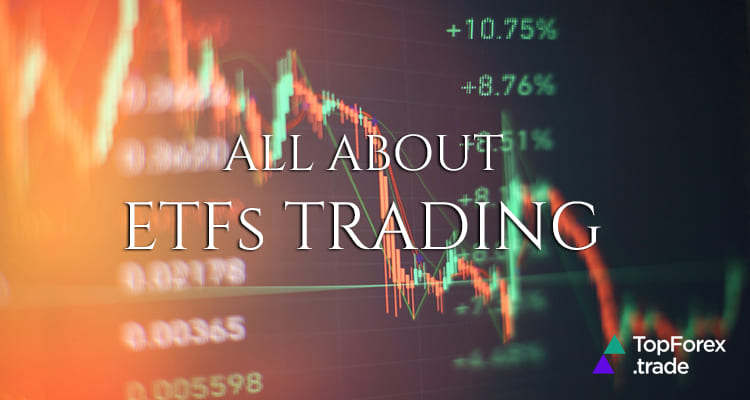
ETFs are a type of financial instrument that combines the best features of two popular assets: the diversification benefits of mutual funds with the ease with which stocks can be traded. ETFs allow you to invest or trade numerous securities at once, and they frequently have lower fees than other types of funds.
In a nutshell, an ETF is a collection of securities that can be purchased or sold on a stock exchange through a broker. ETFs are available in almost every asset class, from traditional to so-called alternative assets like commodities or currencies. Furthermore, new ETF structures enable traders and investors to short markets and gain leverage.
How do ETFs work?
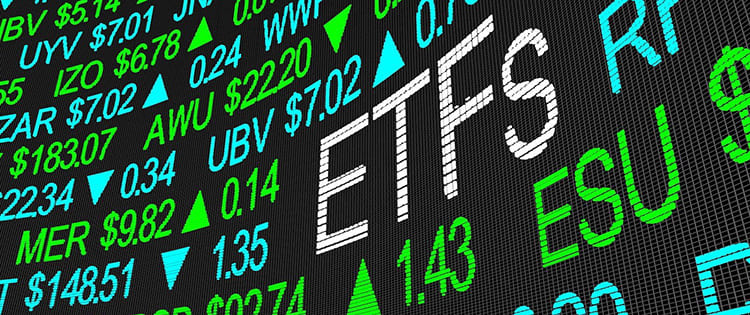
An ETF provider creates a fund of assets to track their performance and sells shares in that fund to traders and investors (they can buy a share of that basket in the same way they would buy stock in a company), making them a kind of fund “shareholders”, who own a portion of an ETF but not the fund’s underlying assets.
Nonetheless, shareholders of ETFs that tracks a stock index may receive lump dividend payments or reinvestment for the index’s constituent stocks.
Like a stock, buyers and sellers trade the ETF on an exchange throughout the day. While ETFs are designed to track the value of an underlying asset or index — whether it’s a commodity like gold or a basket of stocks like the S&P500 — they typically trade at market-determined prices that differ from that asset. Furthermore, due to factors such as trading expenses and commissions, an ETF’s long-term returns will differ from those of its underlying asset.
Types of ETFs for trading

There are a number of ETF types on the market, each with a different focus. Following are some of the most common ETFs, classified by underlying assets and special features:
Currency ETFs
Currency ETrFs allow you to gain access to the Forex market without actually purchasing or selling the underlying currencies. In some situations, these ETFs will only capture a single currency, but in most cases, they will track currency baskets.
Currency ETFs can be used to trade the economic health of regions, such as the EU, or emerging market economies. They can also be used to protect against inflation and currency risk.
Stock index ETFs
ETFs for specific stock indices that track the performance of that underlying index. Because stock indices are nothing more than a group of shares represented by a number, traders and investors must find ways to trade on their price.
ETFs provide exposure to an entire index from a single position. An FTSE 100 ETF, for example, would track the index’s performance and would either hold physical shares of the index’s constituents or products that mimic its price movements.
Commodity ETFs
Rather than containing the physical commodity, commodity ETFs typically derive their price from futures contracts.
It’s important to distinguish between commodity ETFs and commodity-linked ETFs: commodity ETFs mimic the underlying commodity’s price, whereas commodity-linked assets track companies in the industry.
Geographic ETFs
Geographic ETFs enable you to track assets in a specific region. For example, you can trade in a US ETF that grants you exposure across all the US indices, a North American ETF that includes Canadian companies, or any international ETF if you’re looking to diversify your portfolio.
Leveraged ETFs
Trading ETFs with margin and leverage are designed to follow an underlying asset, but use financial derivatives to increase investors’ exposure. A leveraged 2:1 ETF, for example, would maintain a $2 exposure to the underlying asset for every $1 of the trader’s capital. Profits and losses are calculated on the total dollar exposure, so they could outweigh your initial capital.
Short market (inverse) ETFs
Short market ETFs can be found in any of the ETF categories listed above; They follow the underlying asset in the opposite direction. As you can get from the name, traders use an inverse ETF to open short positions in the market, hedge existing long positions, or speculate on falling markets.
ETFs VS. Mutual Funds
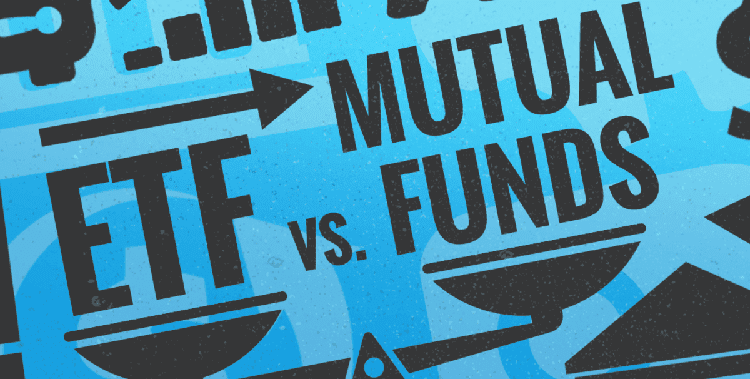
Let’s talk about the similarities first. The most striking analogy between ETFs and mutual funds is that both are professionally managed groupings (or “baskets”) of independent stocks or bonds.
They both may seem less risky options, compared to investing in individual pieces of equity as diversification is built into both ETFs and mutual funds. A single fund could contain dozens, hundreds, or even thousands of different stocks or bonds. So, if one of the groups is performing poorly, another may be performing well, covering up to reduce your risk—and thus your overall losses.
Also, ETFs and mutual funds both provide access to a diverse range of domestic and international stocks. You can invest broadly (such as a total market fund) or narrowly, choosing a high-dividend stock fund.
However, if you’d like lower investment minimums, then it’s better to focus on ETFs. It can be purchased for the price of one share with a low minimum deposit. At the same time, mutual fund minimum initial deposits are typically a flat dollar amount that is not based on the fund’s share price. Mutual funds, unlike ETFs, can be purchased in fractional shares or in fixed dollar amounts.
Choose ETFs if you prefer to have present-time information about the dynamics of the price of your holdings: with mutual funds, you’ll get the same price as everyone else who traded that day, no matter what time you place your order. That price is not calculated until the trading day has ended.
ETFs are traded like stocks and are bought and sold on a stock exchange, with price fluctuations throughout the day. This means that the price you pay for an ETF will almost certainly differ from the price paid by other traders.
Benefits of ETFs trading
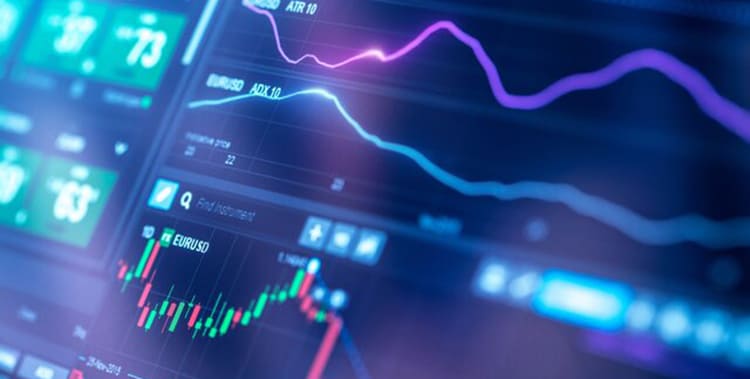
People have flocked to ETF trading because of its ease of use, low initial capital demands, and access to a diversity of financial assets. Yet, there are not all, and here are some more, maybe, less obvious ETFs advantages:
ETFs trading transparency
Unlike dealing with other types of funds, anyone with internet access can look up the price movement of a specific ETF on an exchange. Furthermore, a fund’s holdings are disclosed to the public every day. This transparency enables you to keep a close eye on your holdings, immediately reacting to all market changes in accordance with your trading strategy.
ETFs hedging through diversification
While it is common to think of diversification in terms of broad market verticals — stocks, bonds, or a specific commodity, for example — ETFs allow investors to diversify across horizontals, such as industries. It would take a lot of capital, knowledge, and effort to buy all of the components of a specific basket, but an ETF delivers those benefits to your portfolio with the click of a button. Diversification can help protect your portfolio from market volatility. If you only invested in one industry and that industry had a tough year, your portfolio would most likely have performed poorly as well. By diversifying your holdings across industries, company sizes, geographies, and other factors, you can better balance your portfolio.
ETFs trading liquidity
Though it’s true that not all ETFs possess the same level of liquidity, still comparative benefit is definitely there when it comes to daily trading. As we discussed, unlike in the case of mutual funds, with ETFs you can track the real-time price movements of your holding and react accordingly by selling or buying your assets and making profitable deals. And as ETFs are compounded by multiple stocks or other instruments, for one or another, influenced by the Forex market’s recent events, price movements are always there for you to take advantage of using different Forex trading strategies (for example, scalping).
Top of the most popular ETFs
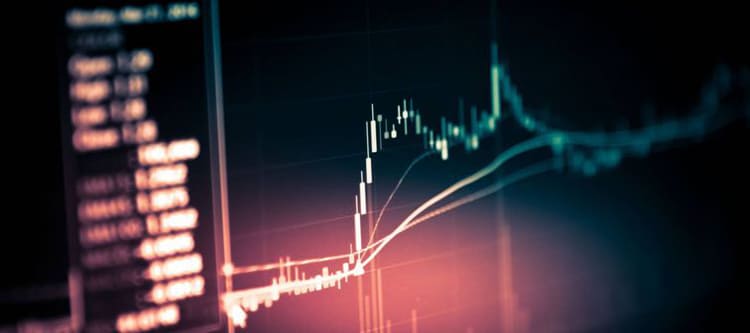
As we mentioned before, ETFs are traded on a stock exchange in the same way that stocks are. They serve the same purpose as indices, investment trusts, and other exchange-traded products. An ETF can be used to track a sector, an index, stocks from a particular country, a commodity, a currency, or fixed income markets.
Here is the list of some of the most widely traded ETFs:
- The iShares Core S&P 500 ETF replicates the performance of the S&P500 index, which evaluates the overall stocks of the largest US companies;
- The Vanguard FTSE 100 UCTIS ETF tracks the performance of the FTSE 100 stock index, which is made up of the top 100 companies in the United Kingdom in terms of market capitalization;
- The Vanguard Total International Stock ETF (VXUS) deals with global stocks, excluding the United States, that are part of the FTSE Global All Cap Index;
- The iShares Core MSCI Total International Stock ETF seeks to replicate the performance of large-, mid-, and small-cap non-US equities;
- iShares US Energy ETF measures the performance of companies in the US oil and gas sector through the Dow Jones US oil and gas index;
- The Global X Cannabis ETF tracks the cannabis index, which provides exposure to cannabis-related companies;
- WisdomTree WTI Crude Oil ETF provides indirect exposure to crude oil prices by tracking the Bloomberg crude oil sub-index;
Secure ETFs trading with VPNs for Forex

Multiple Intruders can complicate trading ETFs and other financial instruments if you use an unsecured public Wi-Fi network. To solve the problem of personal data security, circumvent geo-blocks, and remain anonymous for both the government and other Internet users, the best option would be to use Top VPN services for Forex trading.
Click the button below to register with one of the best VPNs for Forex trading:
VPNs encrypt your traffic and route it through one or more countries to conceal your Internet presence. Furthermore, due to the massive global server network, transaction speed is always consistently high for Forex trading without delays.
Moreover, by having an account with a reliable VPN provider, you can benefit not only in terms of general internet security and Forex trading, but also by unlocking restricted entertainment content (for example, on Netflix, BBC, or YouTube).
Top Forex brokers for ETF trading
ETFs have grown in popularity as they provide a simple way to build a diversified portfolio without large initial capital. Traders don’t have to look far to find these assets: they’re available through some of the best online brokers, licensed by the world’s strictest financial authorities like the ones we mention below.
ETFs trading is pretty much like individual stocks, so many of the characteristics sought by stock-trading market dealers are also relevant to ETFs ones. Many brokers now offer commission-free ETFs, and aside from that, other factors to consider include a broker’s regulations, other financial instruments’ availability like currencies, indices, or Cryptocurrencies, tools for creating a well-diversified portfolio, or part-time trading like Social trading. To secure your deals, remember to practice first on the Forex demo accounts provided by your broker and use the VPN services for trading when you switch to the real account.
HF Markets ETFs trading
ETFs available – 34 (BETS, EPP, EWW, GLD + 30 more)
HF Markets (formerly HotForex in some regions) is a well-known broker that offers a wide range of accounts and trading instruments, including Micro, Premium, Fixed, VIP, and Zero Spread accounts. The broker provides the most competitive spreads and no hidden commissions for gold trading, allowing you to trade the metal in an ultimately favorable environment.
The well-known financial terminals MT4 and MT5 are now available in desktop, web, and mobile versions for Windows, iOS, macOS, and Android, with the addition of a VPS service and the HFcopy – the original Social trading feature. The latter will help novice traders by imitating professionals, while experienced traders will be rewarded for their efforts.
HF Markets is regulated in the EU and fully compliant with CySEC, as well as in the United Kingdom under the supervision of the FCA and in Dubai under a DFSA license.
Plus500 ETF CFDs trading
ETFs available – CFDs for 96 (USO, SLV, UNG, OIH, GLD + 91 more)
Plus500 has been in business for more than a decade, offering CFDs on ETFs, currency pairs, commodities, stocks, indices, and other financial instruments (over 2000 in total), as well as a trading guide and all of the tools necessary to make trading more efficient and secure.
Plus500 customers can access a web terminal for PCs and laptops, as well as an Android and iOS mobile app. Accounts are classified into two types: real and demo. The second will provide an excellent opportunity for new brokers to practice, test their trading skills, and gain valuable knowledge in real-world market conditions while remaining completely risk-free.
Plus500 is a well-known Forex broker with licenses from the UK Financial Conduct Authority, the Australian Securities and Investments Commission, the Cyprus Securities and Exchange Commission, and the New Zealand Financial Markets Authority. It is also a Financial Sector Conduct Authority-licensed regulated financial services provider in South Africa.
82% of retail investor accounts lose money when trading CFDs with this provider. You should consider whether you can afford to take the high risk of losing your money.
NAGA Markets ETFs trading
ETFs available – CFDs for 22 (VTSMX, Nasdaq Biotechnology index, SPDR DJIA + 19 more)
NAGA Markets is an international broker that offers traders over 950 instruments and assets, including forex, stocks, indices, commodities, and ETFs.
NAGA Markets is a reputable broker known for providing numerous Copy trading advantages. NAGA Autocopy is a cutting-edge feature that allows you to automatically replicate top traders on the platform and learn from their mistakes.
Furthermore, it provides a variety of trading tools and educational materials to make trading more efficient and secure. The last statement is guaranteed by several reputable regulatory bodies, and NAGA Markets such as the FCA and CySEC must follow these rules.
Exchange Traded Funds (ETFs) trading - FAQ